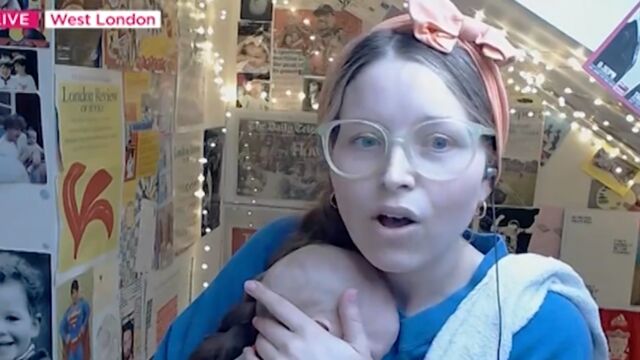Jessie Cave, who featured in the Harry Potter series as the character Lavender Brown, hit the headlines recently after her newborn baby, Tenn, was diagnosed with coronavirus.
Discover our latest podcast
Jessie has no idea how her baby contracted COVID
Recently appearing on Lorriane, Jessie admitted that she had no idea how her baby had contracted COVID, but that her partner was now contracted it also. Luckily Jessie revealed that she hasn’t experienced any symptoms of the virus at all:
I did go and get a test because I wanted to see my mum and family at Christmas, and then obviously we couldn’t. And he was completely fine, there was absolutely nothing wrong, then over a week, almost two weeks later, just suddenly turned.
The star went on to reveal that her suspicions that her newborn might be sick were almost entirely down to instinct:
That’s the thing about newborns you have to be so hyper aware of every symptom and just to trust your instincts.
Jessie then went on to explain that Tenn cried and fed differently and even started to act like a ‘different baby’ altogether:
I just went for it and I went into A&E, I think that’s what everyone has to do, they have to be aware of a sudden quick change, because it could have been a completely different story if I hadn't gone in.
The star has now issued a warning to other new mothers saying that at 'this stage of newborn their immune system is so weak, and so anything can have really bad consequences.'
What are the symptoms of coronavirus infection in babies?
Detecting signs of coronavirus infection in babies can be difficult as they can’t exactly tell you how they’re feeling.
John Hopkins Medicine has highlighted that the symptoms of COVID-19 are much the same in babies and children as they are in adults but are often milder. This makes it all the more important to keep a close eye on your child in order to detect potential symptoms.
Symptoms of COVID-19 in children and adults:
- Cough
- Fever or chills
- Shortness of breath or difficulty breathing
- Muscle or body aches
- Sore throat
- New loss of taste or smell
- Diarrhoea
- Headache
- New fatigue
- Nausea or vomiting
- Congestion or runny nose
Shortness of breath or difficulty breathing can also be hard to detect in babies so look out for any signs such as:
- Snoring, wheezing or grunting noises
- Contraction of the muscles around the ribs when inhaling
- Flaring of the nostrils
- Rapid breathing
If your baby is experiencing any of these symptoms and you think they may be suffering from a coronavirus infection it is best to seek immediate assistance from an NHS worker.
Jessie also pointed out in an Instagram post that any changes in mood, feeding pattern or cold hands and feet can also be signs that your baby has a coronavirus infection.
When to seek emergency attention
If your child is experiencing any of the following symptoms then you should seek emergency medical attention:
- Difficulty breathing or catching his or her breath
- Inability to keep down any liquids
- New confusion or inability to awaken
- Bluish lips















